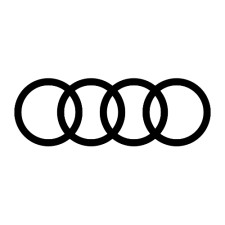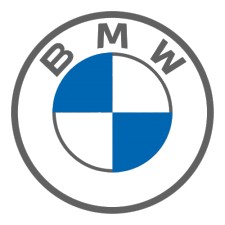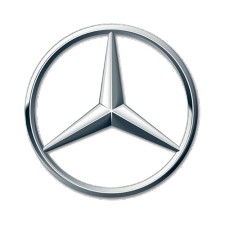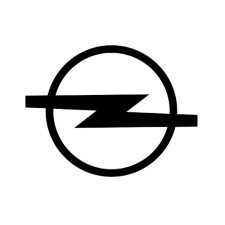Que signifie votre code Code Défaut OPEL ?
Grace au système OBD, les
Opel
fabriqués après 1996 sont normalement équipés d'une prise diagnostique OBD.
Si l'ordinateur de la voiture rencontre un problème,un code d'erreur ou un code de diagnostic (DTC)
sera stocké dans la mémoire de l'ECU de la voiture.
Avec un lecteur OBD branché sur le port OBD (On-Board Diagnostics) de la voiture, vous pouvez lire la liste des codes stockés, et donc découvrir quel est le problème.
Les codes suivent une formule permettant de savoir généralement quel est le problème avant même de regarder le tableau ci-dessous.
Nous vous présentons ci-dessus une liste très complète des différents codes défauts possibles.
Si le code défaut de votre auto s'affiche au tableau de bord, vous n'aurez peut-être même pas besoin d'un lecteur OBD . il sera dans la liste .
Réparer le code défaut de votre auto, c'est potentiellement simple à faire avec vos revues et méthodes techniques.

Réparer le code défaut de votre auto, c’est potentiellement simple à faire avec nos revues et méthodes techniques
| Code | Libellé |
|---|---|
| P3403 | Cylinder 1 deactivation/inlet valve control circuit low |
| P3404 | Cylinder 1 deactivation/inlet valve control circuit high |
| P3409 | Cylinder 2 deactivation/inlet valve control circuit/open |
| P3410 | Cylinder 2 deactivation/inlet valve control performance |
| P3411 | Cylinder 2 deactivation/inlet valve control circuit low |
| P3412 | Cylinder 2 deactivation/inlet valve control circuit high |
| P3417 | Cylinder 3 deactivation/inlet valve control circuit/open |
| P3418 | Cylinder 3 deactivation/inlet valve control performance |
| P3419 | Cylinder 3 deactivation/inlet valve control circuit low |
| P3420 | Cylinder 3 deactivation/inlet valve control circuit high |
| P3425 | Cylinder 4 deactivation/inlet valve control circuit/open |
| P3426 | Cylinder 4 deactivation/inlet valve control performance |
| P3427 | Cylinder 4 deactivation/inlet valve control circuit low |
| P3428 | Cylinder 4 deactivation/inlet valve control circuit high |
| P3433 | Cylinder 5 deactivation/inlet valve control circuit/open |
| P3434 | Cylinder 5 deactivation/inlet valve control performance |
| P3435 | Cylinder 5 deactivation/inlet valve control circuit low |
| P3436 | Cylinder 5 deactivation/inlet valve control circuit high |
| P3441 | Cylinder 6 deactivation/inlet valve control circuit/open |
| P3442 | Cylinder 6 deactivation/inlet valve control performance |
| P3443 | Cylinder 6 deactivation/inlet valve control circuit low |
| P3444 | Cylinder 6 deactivation/inlet valve control circuit high |
| P3449 | Cylinder 7 deactivation/inlet valve control circuit/open |
| P3450 | Cylinder 7 deactivation/inlet valve control performance |
| P3451 | Cylinder 7 deactivation/inlet valve control circuit low |
| P3452 | Cylinder 7 deactivation/inlet valve control circuit high |
| P3457 | Cylinder 8 deactivation/inlet valve control circuit/open |
| P3458 | Cylinder 8 deactivation/inlet valve control performance |
| P3459 | Cylinder 8 deactivation/inlet valve control circuit low |
| P3460 | Cylinder 8 deactivation/inlet valve control circuit high |
| P3465 | Cylinder 9 deactivation/inlet valve control circuit/open |
| P3466 | Cylinder 9 deactivation/inlet valve control performance |
| P3467 | Cylinder 9 deactivation/inlet valve control circuit low |
| P3468 | Cylinder 9 deactivation/inlet valve control circuit high |
| P3473 | Cylinder 10 deactivation/inlet valve control circuit/open |
| P3474 | Cylinder 10 deactivation/inlet valve control performance |
| P3475 | Cylinder 10 deactivation/inlet valve control circuit low |
| P3476 | Cylinder 10 deactivation/inlet valve control circuit high |
| P3481 | Cylinder 11 deactivation/inlet valve control circuit/open |
| P3482 | Cylinder 11 deactivation/inlet valve control performance |
| P3483 | Cylinder 11 deactivation/inlet valve control circuit low |
| P3484 | Cylinder 11 deactivation/inlet valve control circuit high |
| P3489 | Cylinder 12 deactivation/inlet valve control circuit/open |
| P3490 | Cylinder 12 deactivation/inlet valve control performance |
| P3491 | Cylinder 12 deactivation/inlet valve control circuit low |
| P3492 | Cylinder 12 deactivation/inlet valve control circuit high |
| P3497 | Cylinder deactivation system (bank 2) |
| P34B7 | Exhaust camshaft position actuator temperature sensor circuit high (bank 1) |
| U0001 | High-speed CAN communication bus |
| U0002 | High-speed CAN communication bus performance |
| U0003 | High-speed CAN communication bus (+) circuit/open |
| U0004 | High-speed CAN communication bus (+) circuit low |
| U0005 | High-speed CAN communication bus (+) circuit high |
| U0006 | High-speed CAN communication bus (-) circuit/open |
| U0007 | High-speed CAN communication bus (-) circuit low |
| U0008 | High-speed CAN communication bus (-) circuit high |
| U0009 | High-speed CAN communication bus (-) short circuit to bus (+) |
| U0010 | Medium-speed CAN communication bus |
| U0045 | Vehicle communication bus B (-) short circuit to bus B (+) |
| U0100 | Lost communication with engine control unit/powertrain control unit A |
| U0101 | Lost communication with the transmission control unit (TCM) |
| U0103 | Lost communication with the gear-shift unit |
| U0104 | Lost communication with the cruise control unit |
| U0106 | Lost communication with the glow plug control unit |
| U0107 | Lost communication with throttle actuator control unit |
| U0108 | Lost communication with the alternative fuel control unit |
| U0109 | Lost communication with the fuel pump control unit |
| U010A | Lost communication with exhaust gas recirculation unit A |
| U010B | Lost communication with exhaust gas recirculation unit B |
| U010C | Lost communication with turbocharger control unit 1 |
| U010D | Lost communication with turbocharger control unit 2 |
| U010E | Lost communication with the reductant control unit |
| U010F | Lost communication with the air-conditioning system control unit |
| U0110 | Lost communication with the drive motor control unit |
| U0111 | Lost communication with battery energy control unit A |
| U0112 | Lost communication with battery energy control unit B |
| U0113 | Lost communication with the emissions critical control information source |
| U0114 | Lost communication with the 4WD clutch control unit |
| U0115 | Lost communication with engine control unit/powertrain control unit B |
| U0116 | Lost communication with the coolant temperature control unit |
| U0117 | Lost communication with the electrical power take-off (PTO) control unit |
| U0118 | Lost communication with the fuel additive control unit |
| U0119 | Lost communication with the fuel cell control unit |
| U011B | Lost communication with rocker arm control unit A |
| U011C | Lost communication with rocker arm control unit B |
| U011D | Lost communication with the all-wheel drive control unit |
| U011E | Lost communication with throttle actuator control unit 2 |
| U0120 | Lost communication with the starter/alternator control unit |
| U0121 | Lost communication with the ABS control unit |
| U0122 | CAN-Bus no communication with the ABS/TC |
| U0122 | Lost communication with the vehicle dynamics control unit |
| U0123 | Lost communication with the yaw rate sensor unit |
| U0124 | Lost communication with the lateral acceleration sensor unit |
| U0125 | Lost communication with the multi-axis acceleration sensor unit |
| U0126 | CAN-Bus no communication with the steering angle sensor |
| U0127 | Lost communication with the tyre pressure control unit |
| U0128 | Lost communication with the parking brake control unit |
| U0129 | Lost communication with the brake system control unit |
| U012A | Lost communication with chassis control unit 1 |
| U012B | Lost communication with chassis control unit 2 |
DEFINISSEZ VOTRE MARQUE POUR ACCEDER A VOS CODES DEFAUTS
-
Revue technique RTA

Revue Technique Automobile
La revue technique de référence depuis 1946. La RTA est une revue papier pour tous publics, qui vous permet d'effectuer les petites et les grosses réparations
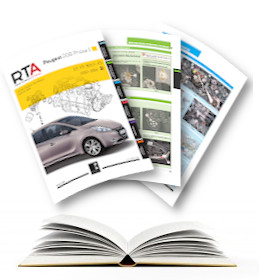 Voir le descriptif
Voir le descriptif
-
Entretien courant MTA

Méthode Technique Automobile
La MTA est issue de nos outils destinés aux pros de l'auto. Ces méthodes en ligne permettent d'effectuer les opérations de maintenances de votre auto (filtres, courroies, etc.)
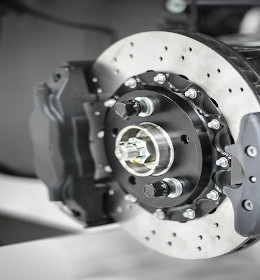 Voir le descriptif
Voir le descriptif
-
Toutes réparations MTAx

Méthode Technique Automobile Expert
La MTA expert est un outil en ligne destiné aux experts en mécanique et en carrosserie, pour effectuer tous types de réparations sur une voiture.
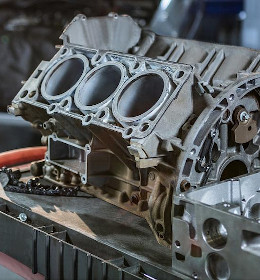 Voir le descriptif
Voir le descriptif




